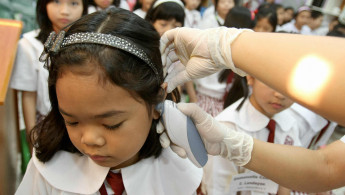UAE healthcare suffering from lack of Emiratis due to tough working patterns
Seha hospital in Abu Dhabi, the capital of the UAE, relies mostly on nurses from India and Philippines to fill nursing positions, with Emiratis making less than three percent of the 7,300 nurses employed in the capital's publicly-run hospitals.
"We have a lack of Emiratis enrolling in nursing programmes and it is big challenge," said Samah Mahmoud, deputy chief allied health officer at Seha hospital.
"Currently, we don't have a sufficient number of UAE national nurses," She continued.
Mahmoud said Emiratis are hesitant to apply for nursing jobs because they consider it a challenging role, requiring commitment to long shifts, weekends and public holidays.
To mitigate this challenge, the UAE government is giving incentives to encourage Emiratis to have more interest in the profession.
"The government has introduced various scholarship programmes for Emiratis and is creating suitable working conditions and environment - including less working hours and good salaries," Mahmoud said.
UAE labour law is considered one of the regressive laws in the region. The government has been the focus of rights groups for the rife work discrimination in the Gulf Country.
Gender-based work discrimination is another black mark standing out in the UAE.
Following new amendments to labour law announced this weekend, women expatriates must earn around three times as much as men to bring their children to the country.
"While it is good that the UAE is moving away from denying specific sectors of workers from sponsoring their family, the requirement that women must have a significantly larger income than men in order to sponsor their families into the UAE is discriminatory," Hiba Zayadin, Human Rights Watch's assistant researcher for the Middle East and North Africa Division told The New Arab.





 Follow the Middle East's top stories in English at The New Arab on Google News
Follow the Middle East's top stories in English at The New Arab on Google News
![Israeli forces ordered bombed Gaza's Jabalia, ordering residents to leave [Getty]](/sites/default/files/styles/image_330x185/public/2176418030.jpeg?h=a5f2f23a&itok=_YGZaP1z)

